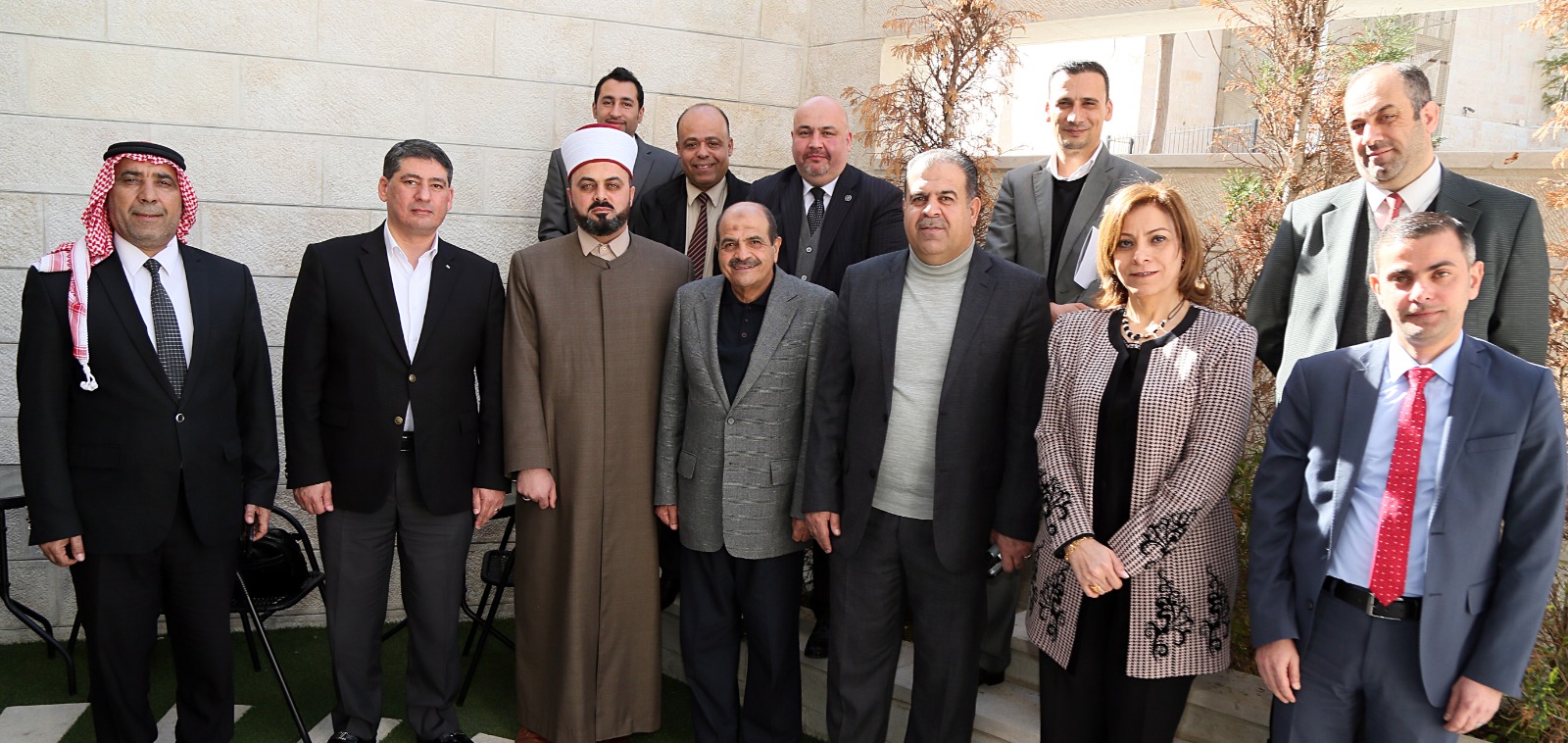The Arab Renaissance for Democracy and Development (ARDD) held a consultation meeting on Sunday, January 21, 2024, that included the Jordanian General Iftaa Department, members of the National Alliance for Combatting Narcotics in Jordan, as well as law professionals and the Jordanian Ministry of Awqaf, upon the response by the Iftaa department to the Alliace’s demand to clarify the fatwa declaring “money gained from drug dealing unlawful”.
The department said through the head of the electronic fatwa department, Mufti Dr. Muhammad Rawashdeh, during the meeting, which aimed to read the text of the fatwa and discuss what was stated in it before circulating it to all entities, institutions, and members of society as a whole, that “Sharia prohibits everything that leads to mental demise or undermines mental capacity, which could lead to violating of the five necessities: the preservation of faith, life, offspring, reason, and money.”
Despite the existence of a previous fatwa issued by the Iftaa Department that prohibits using and dealing drugs, the demand for clarifying this fatwa, according to the Alliance affiliated with the Justice Sector Support Forum, came in response to an urgent and immediate need, especially with the spread of conflicts in the region, which led to an increase in drug trafficking.
The new prohibition ruling stipulates that “the effects of drug use are destructive to humans as well as society and collide with the provisions of Islamic Sharia and its rulings, hence the prohibition. Accordingly, drug trafficking, whether it’s selling, buying, smuggling, marketing, or profiting thereof, is all prohibited, because what leads to sin is a sin,” according to the Iftaa Department.
For his part, the head of the Alliance, former director of the Drug Enforcement Administration retired Major General Tayel al-Majali, stressed the importance of strengthening the protection, awareness, and prevention system from time to time, which is what the Alliance is currently working on by intensifying awareness and educational efforts on the dangers of drugs, in cooperation with all military, governmental, and civil society actors, including the media, civil society institutions, and experts in this regard.
Meanwhile, network coordinator at ARDD, Iman Abu Qaoud called for focusing on legal accountability, non-tolerance for anyone who undermines national security from inside and outside the country, and toughening penalties against smugglers and promoters of drugs, with the need to enhance awareness and educational efforts on the dangers of drug use and addiction.
For his part, Alliance member retired Major General Dr. Ammar Al-Qudah, called for circulating this fatwa and publishing it in schools and universities and among all institutions and sectors, as well as working on preparing scientific studies on the use of drugs by women and juveniles in particular.
The government’s general coordinator for human rights in the Prime Ministry, Natheer Awamleh, said that curbing the spread of drugs is a “collective responsibility”, praising the efforts of civil society institutions to continue coordinating and responding to the various crises facing the Kingdom.
In conclusion, the Iftaa Department advised everyone who is afflicted with intoxicants or drugs “to quit them immediately, and to seek professional help to deal with the withdrawal symptoms that accompany quitting them,” stressing in the same context that “drug use, promotion, and trafficking are among the gravest of sins, and are considered a form of wreaking havoc on earth, which leads to the loss of security, undermining of values, and the disintegration of families.”
The participants in the meeting reiterated the importance of delivering this fatwa to preachers, guides, the media, and among all segments of society, as well as addressing the Ministry of Awqaf to circulate it in Friday sermons, with the need to include medical prescriptions and medicines used by non-patients or not under the supervision of a doctor within the text of the fatwa and clarify it publicly, as well as strengthening the deterrence aspect in a studied and informed manner to prevent relapse.


